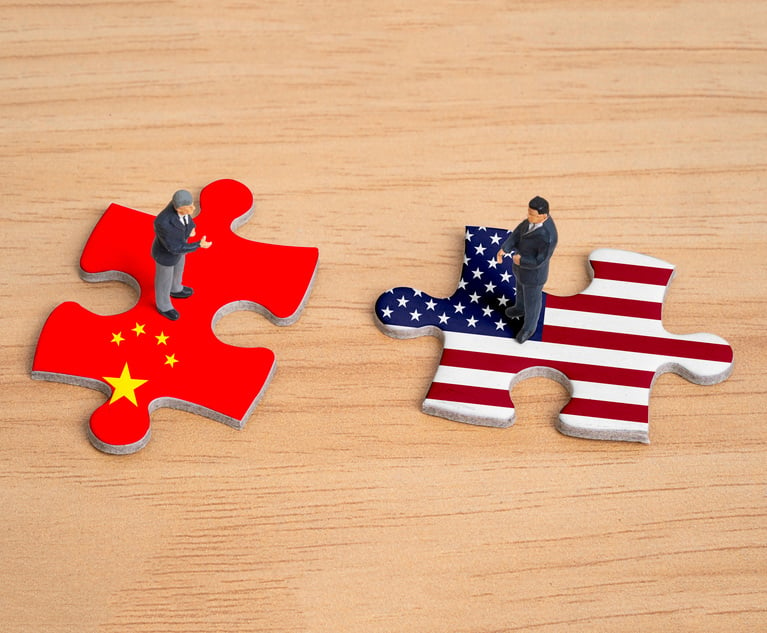International firms aim to cash in on Chinese companies' appetite for outbound M&A deals
When Smithfield, the world's largest pork producer, announced at the end of May that it had agreed to be bought by a Chinese meat processing company, Shuanghui International, it made the US public sit up and take notice. The $4.7bn (£3.1bn) deal, which still requires regulatory approval, would be the largest takeover of a US business by a Chinese conglomerate, adding to fears among some Americans about the expansionist plans of their biggest economic rival.
July 04, 2013 at 07:07 PM
5 minute read
When Smithfield, the world's largest pork producer, announced at the end of May that it had agreed to be bought by a Chinese meat processing company, Shuanghui International, it made the US public sit up and take notice.
The $4.7bn (£3.1bn) deal, which still requires regulatory approval, would be the largest takeover of a US business by a Chinese conglomerate, adding to fears among some Americans about the expansionist plans of their biggest economic rival.
Certainly, the appetite of Chinese companies for international acquisitions is increasing; particularly private companies in sectors such as food and beverage, manufacturing and property.
According to Dealogic, there have been 61 outbound transactions by private enterprises since January this year valued at $10.4bn (£6.8bn), compared to 54 deals valued at $6.1bn (£4bn) during the same period in 2012.
Chinese businesses have this year been targeting new industries such as textiles, healthcare and lodging and dining, while the value of food and beverage and real estate acquisitions has far surpassed those in areas such as mining, machinery and oil and gas. The question is whether this trend will continue.
"Certainly that is people's hope," says Gregory Puff, Asia managing partner for Akin Gump, who has worked on several Chinese take-privates but is now eyeing outbound deals.
"There is plenty of noise in the marketplace about an interest in outbound deals and we've seen evidence, not yet announced, of a number of interested buyers. As more of these big deals get announced it gives other companies the courage to go ahead and try for a similar thing on their own.
"If financing is available and the Chinese buyers learn how to act quickly and participate meaningfully in those deals, then we'll see more."
 Freshfields Bruckhaus Deringer corporate partner Alan Wang (pictured), one of the lead partners on the recent purchase of Sunseeker, the UK luxury yacht-maker, by Chinese conglomerate Dalian Wanda Group, agrees that the outbound M&A market is perking up, with private Chinese companies playing a bigger part.
Freshfields Bruckhaus Deringer corporate partner Alan Wang (pictured), one of the lead partners on the recent purchase of Sunseeker, the UK luxury yacht-maker, by Chinese conglomerate Dalian Wanda Group, agrees that the outbound M&A market is perking up, with private Chinese companies playing a bigger part.
"Traditionally energy and natural resources deals have been very big, such as the CNOOC-Nexen deal, whereas with manufacturing the deal size varies," he says. "But increasingly we're seeing big deals in other sectors, such as those between Shuanghui and Smithfield and Bright Food and Weetabix.
"There is a recognition among Chinese companies that the domestic market is becoming more competitive and saturated, and Chinese customers are becoming more demanding. So there is a real need for them to upgrade their brand and tap into the international market to increase revenues. State-owned companies still dominate the bigger end of the market, the mega-deals, but the share for private companies is increasing."
The advantage for law firms focused on outbound deals, partners say, is that fees tend to be marginally higher than on inbound work because of the complexity of the transactions and the tendency among clients to appreciate the need for reputable, international counsel. That said, pricing pressure is intense because of the highly competitive market, while deals can be difficult to close.
Skadden Arps Slate Meagher & Flom Beijing corporate partner Peter Huang says: "You only find out about most of the deals after they have been announced, so it's important to get in with the company early.
"It is also difficult to negotiate a good fee. On some of those transactions the company might have a beauty parade of international law firms, and on others they just go to one firm. Knowing the company is very important."
Looking at those who have advised on big deals recently, Puff says no firm has established a dominant grip on the market. He believes much depends on the location of the target acquisition in terms of who wins the mandates, while other M&A lawyers highlight the need for a proper investment in any firm's global China group practice – including training and regular meetings between staff around the world.
"If it's a deal in Germany for example, certainly [a client] is going to be looking for someone [with offices] in both China and Germany," says Puff, adding that the same would be true if the deal were in Moscow or anywhere else. But he points out: "In the US, it depends on your track record in the industry you're talking about as well as your ability to bring a good M&A team to that project in China."
Wang concludes by stressing the importance of the China-based group: "You always need to have one partner in China and one in the jurisdiction where the acquisition is being made… Chinese clients, a lot of the time, prefer to have things explained to them in Chinese, and they want to have things fairly instantaneously. All of that can only be achieved by having strong support in China."
This content has been archived. It is available through our partners, LexisNexis® and Bloomberg Law.
To view this content, please continue to their sites.
Not a Lexis Subscriber?
Subscribe Now
Not a Bloomberg Law Subscriber?
Subscribe Now
NOT FOR REPRINT
© 2025 ALM Global, LLC, All Rights Reserved. Request academic re-use from www.copyright.com. All other uses, submit a request to [email protected]. For more information visit Asset & Logo Licensing.
You Might Like
View All
Singapore Leaders Stress the Importance of the Rule of Law Amid Geopolitical Tensions

Can Law Firms Avoid Landing on the 'Enemy' List During the Trump Administration?
5 minute read

Letter From Asia: Will Big Law Ever Bother to Understand Asia Again?
Trending Stories
- 1How ‘Bilateral Tapping’ Can Help with Stress and Anxiety
- 2How Law Firms Can Make Business Services a Performance Champion
- 3'Digital Mindset': Hogan Lovells' New Global Managing Partner for Digitalization
- 4Silk Road Founder Ross Ulbricht Has New York Sentence Pardoned by Trump
- 5Settlement Allows Spouses of U.S. Citizens to Reopen Removal Proceedings
Who Got The Work
J. Brugh Lower of Gibbons has entered an appearance for industrial equipment supplier Devco Corporation in a pending trademark infringement lawsuit. The suit, accusing the defendant of selling knock-off Graco products, was filed Dec. 18 in New Jersey District Court by Rivkin Radler on behalf of Graco Inc. and Graco Minnesota. The case, assigned to U.S. District Judge Zahid N. Quraishi, is 3:24-cv-11294, Graco Inc. et al v. Devco Corporation.
Who Got The Work
Rebecca Maller-Stein and Kent A. Yalowitz of Arnold & Porter Kaye Scholer have entered their appearances for Hanaco Venture Capital and its executives, Lior Prosor and David Frankel, in a pending securities lawsuit. The action, filed on Dec. 24 in New York Southern District Court by Zell, Aron & Co. on behalf of Goldeneye Advisors, accuses the defendants of negligently and fraudulently managing the plaintiff's $1 million investment. The case, assigned to U.S. District Judge Vernon S. Broderick, is 1:24-cv-09918, Goldeneye Advisors, LLC v. Hanaco Venture Capital, Ltd. et al.
Who Got The Work
Attorneys from A&O Shearman has stepped in as defense counsel for Toronto-Dominion Bank and other defendants in a pending securities class action. The suit, filed Dec. 11 in New York Southern District Court by Bleichmar Fonti & Auld, accuses the defendants of concealing the bank's 'pervasive' deficiencies in regards to its compliance with the Bank Secrecy Act and the quality of its anti-money laundering controls. The case, assigned to U.S. District Judge Arun Subramanian, is 1:24-cv-09445, Gonzalez v. The Toronto-Dominion Bank et al.
Who Got The Work
Crown Castle International, a Pennsylvania company providing shared communications infrastructure, has turned to Luke D. Wolf of Gordon Rees Scully Mansukhani to fend off a pending breach-of-contract lawsuit. The court action, filed Nov. 25 in Michigan Eastern District Court by Hooper Hathaway PC on behalf of The Town Residences LLC, accuses Crown Castle of failing to transfer approximately $30,000 in utility payments from T-Mobile in breach of a roof-top lease and assignment agreement. The case, assigned to U.S. District Judge Susan K. Declercq, is 2:24-cv-13131, The Town Residences LLC v. T-Mobile US, Inc. et al.
Who Got The Work
Wilfred P. Coronato and Daniel M. Schwartz of McCarter & English have stepped in as defense counsel to Electrolux Home Products Inc. in a pending product liability lawsuit. The court action, filed Nov. 26 in New York Eastern District Court by Poulos Lopiccolo PC and Nagel Rice LLP on behalf of David Stern, alleges that the defendant's refrigerators’ drawers and shelving repeatedly break and fall apart within months after purchase. The case, assigned to U.S. District Judge Joan M. Azrack, is 2:24-cv-08204, Stern v. Electrolux Home Products, Inc.
Featured Firms
Law Offices of Gary Martin Hays & Associates, P.C.
(470) 294-1674
Law Offices of Mark E. Salomone
(857) 444-6468
Smith & Hassler
(713) 739-1250








